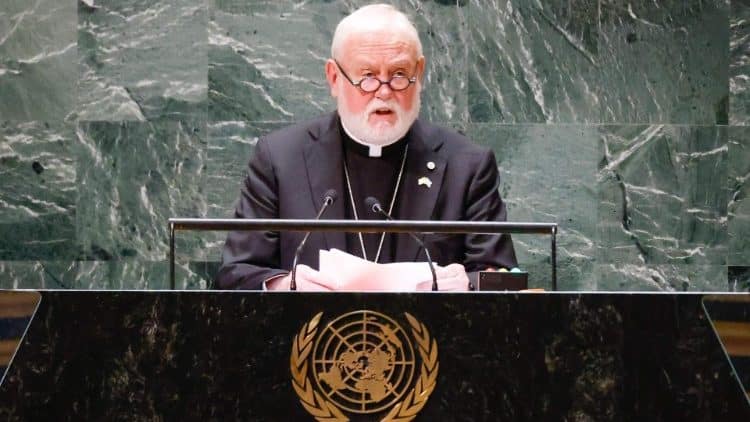The International Day for the Total Elimination of Nuclear Weapons is observed every 26 September. It was established by the United Nations General Assembly in 2013 in recognition of the threat that nuclear weapons pose to humanity and the need for their total elimination. The aim of this day is to promote public awareness of the threat of nuclear weapons and commitment to their elimination. Nuclear weapons are the most destructive weapons ever created.
The United Nations General Assembly has adopted a series of resolutions condemning the use of nuclear weapons and calling for their total elimination. A world without nuclear weapons would be a safer and more peaceful world for all. This issue highlights the importance of the elimination of nuclear weapons for global peace and security. The international community must continue to work to eliminate the weapons.
We publish below the address that H.E. Archbishop Paul Richard Gallagher, Secretary for Relations with States and International Organizations of the Secretariat of State, delivered yesterday in New York at the UN High-Level Meeting to Commemorate the International Day for the Total Elimination of Nuclear Weapons:
Address by H.E. Msgr. Paul Richard Gallagher
Statement by His Excellency Archbishop Paul Gallagher,
Secretary for Relations with States and International Organizations of the Holy See,
at the UN High-level Meeting to Commemorate the International
Day for the Total Elimination of Nuclear Weapons
New York, 26 September 2023
Mr. President,
Thank you for this opportunity to address the moral imperative to eliminate nuclear weapons. Regrettably, the risk of nuclear war is at its highest in generations, featuring unconscionable threats of nuclear use, while an arms race runs unabated. As States squander resources needed for pressing development concerns on nuclear weapons, they have abandoned much of the arms control and disarmament architechture that underpins international security. In such a context, it is clear that nuclear-weapon States are increasing reliance on nuclear deterrence, rather than meeting obligations under Article VI of the Nuclear Non-Proliferation Treaty (NPT).
The world must reverse course. Pope Francis insists that, “the ultimate goal of the total elimination of nuclear weapons becomes both a challenge and a moral and humanitarian imperative.”[1] The Treaty on the Prohibition of Nuclear Weapons (TPNW) provides some direction. The Holy See hopes that the Second Meeting of States Parties (2MSP) will agree on further steps to advance verification and positive obligations building on the Vienna Action Plan. The Holy See reiterates its hope that, irrespective of their positions on the TPNW, States reliant on nuclear deterrence will contribute to these efforts.
States must also reinvigorate other nuclear disarmament measures, including the adoption of no-first-use policies, a revival of bilateral arms control processes, the entry-into-force of the Comprehensive Nuclear-Test-Ban Treaty (CTBT) and the start of negotiations on treaties on fissile material and negative security assurances.
Mr. President,
Nuclear weapons offer a false sense of security based on “a mentality of fear” that risks catastrophic humanitarian and environmental consequences.[2] Achieving the total elimination of nuclear weapons requires a collective response based on mutual trust. The International community must continue to explore ways to enhance cooperative security toward that end.
Thank you, Mr. President.
_________________












